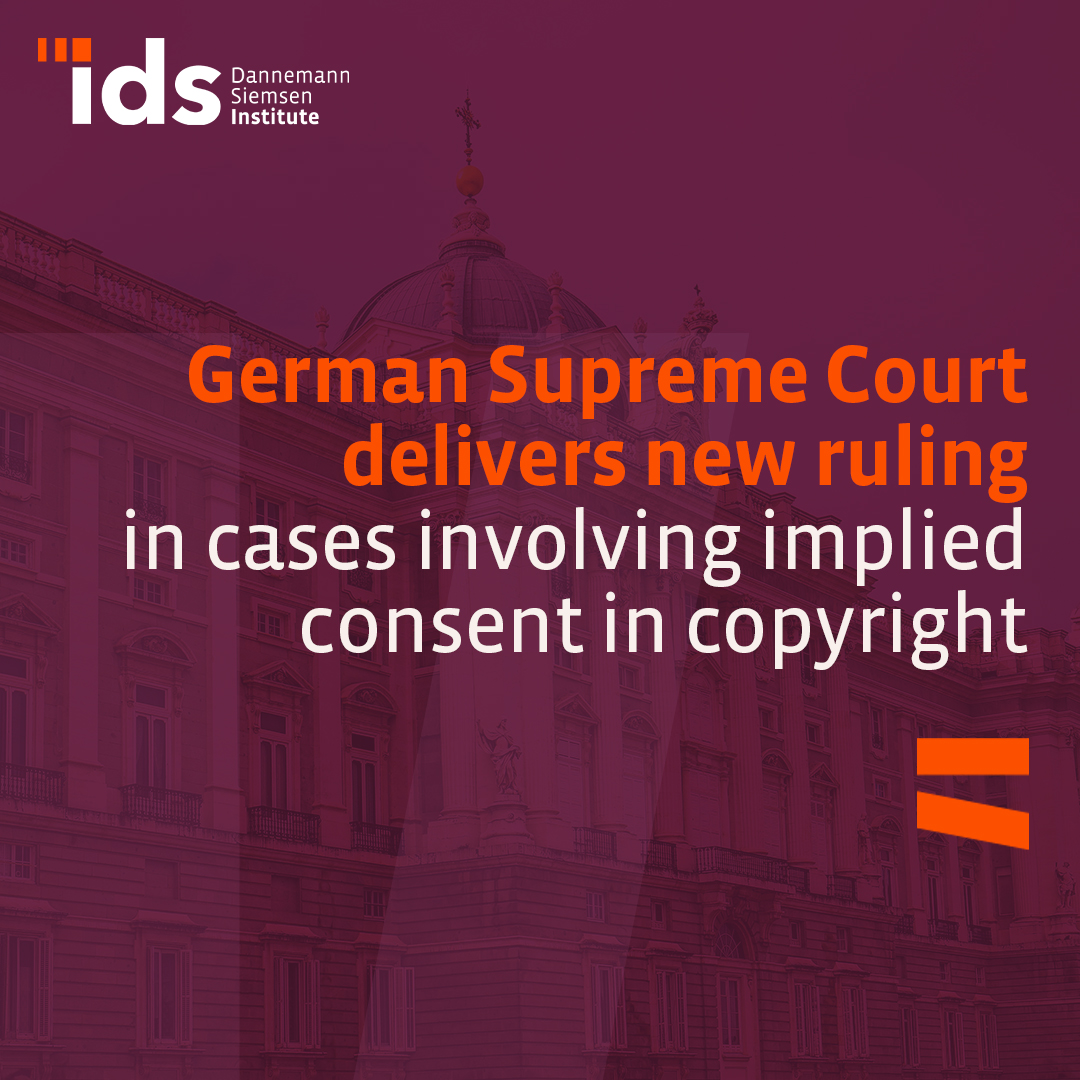21 de outubro de 2024
Share
German Supreme Court delivers new ruling in cases involving implied consent in copyright
In 3 judgments on September 11, the German Supreme Court handed down decisions in 3 cases involving the scope of implied consent in copyright. In all 3 cases, a photographer sued his clients for publishing online photos and videos taken in front of wallpapers they had bought, which he had created. In the Court’s view, these appearances in the background of photo wallpapers are not surprising and are therefore covered by the implied consent of the copyright owner under the German Copyright Act.
The 3 disputes arose from the claims of a company that sells photo wallpapers authored by its CEO. The defendants, 3 of their clients, published their own photos, videos or screenshots in which the plaintiff’s wallpapers appeared in the background. In the first case (Case I ZR 139/23), the defendant installed the wallpaper in his private home and then shared videos on a social network in which the wallpaper was visible in the background. In the second case (Case I ZR 140/23), the owner of a media agency had displayed a screenshot on his website showing a website layout that the agency had designed for a tennis center. The layout shown in the screenshot included a view of the center’s dining area, where the wallpaper had been installed. In the third case (Case I ZR 141/23), the defendant owned a hotel and published on its website, for advertising purposes, a promotional image of one of the rooms where the wallpaper had been installed.
According to the plaintiff company, the plaintiff owned the copyright to the images on the wallpapers, and therefore the taking of photographs and videos constituted a reproduction and that publishing them online was tantamount to making them available to the public. At first instance, in the regional court of Cologne, the claims were denied.
The German Supreme Court held in all 3 cases that the use of photo wallpapers was legal according to the principle of implied consent. The court held that, in order to assess whether a copyright holder’s conduct can be considered implied consent, it is relevant to determine “whether the use is a foreseeable form of use that the right holder must expect and whether the right holder nevertheless makes his work freely available to users without restriction”. The ruling considered that these principles are in line with the provisions of Art. 2(a) and Art. 3(1) of the InfoSoc Directive. According to them, the right holder may not only prohibit the reproduction and making available of a work, but also permit such acts, even implicitly.
In addition, the decision emphasized that by selling photo wallpapers without any express restriction on their use, the plaintiff implicitly consented to common and foreseeable uses of the wallpapers, such as their inclusion in photographs or videos made for purposes such as those of the defendants. In the specific case involving the hotel owner, the Court also clarified that implied consent need not be declared to the party invoking it. Thus, the owner of the agency that published the advertisement could rely on implied consent, even if she was not involved in the purchase of the photo wallpaper. With this understanding, the Supreme Court denied the photographer’s requests in all three cases.
The 3 decisions (available only in German) can be accessed via the links: I ZR 139/23, I ZR 140/23 and I ZR 141/23
Note: For quick release, this English version is provided by automated translation without human review.
